Did you know that in the Japanese language, there are many words with multiple meanings? These words can come across very differently depending on the situation you use them in!
In this blog article, we will be sharing with you 10 Japanese words that have multiple meanings, some of which you might even find very familiar too!
1. Yes
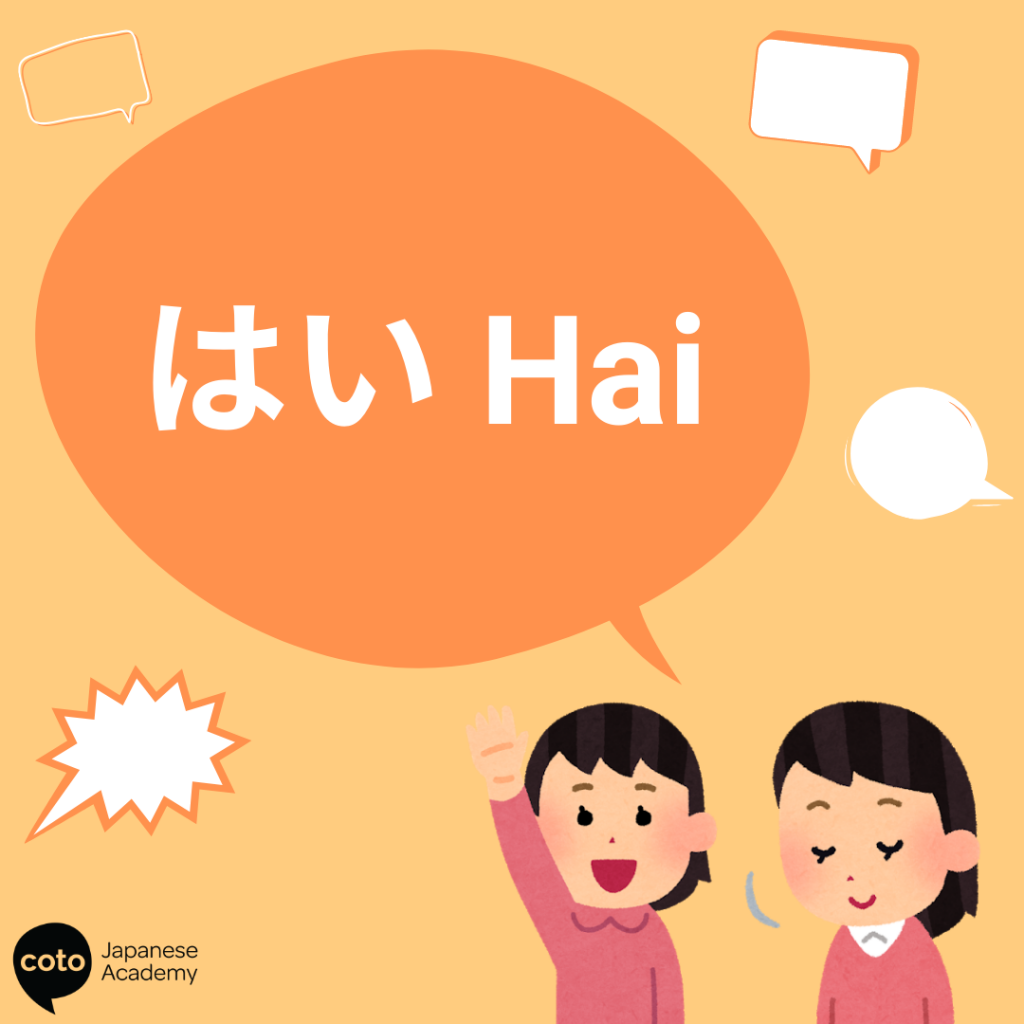
Yes Hai literally means “yes” in English.
Everywhere you go in Japan, you can hear people saying “hai, hai” when talking to others. In this case, the other meaning of hai (hai) is “I understand what you are saying” or simply put, being “affirmative”. This links with Aizuchi , which are Japanese conversational interjections, to show active listening. When hai (hai) is used in a conversation, it shows that the listener has attention and interest towards the speaker. Hence, saying hai (hai) does not always necessarily mean that you are agreeing with the other person, but just confirming what they said!
2. Difficult
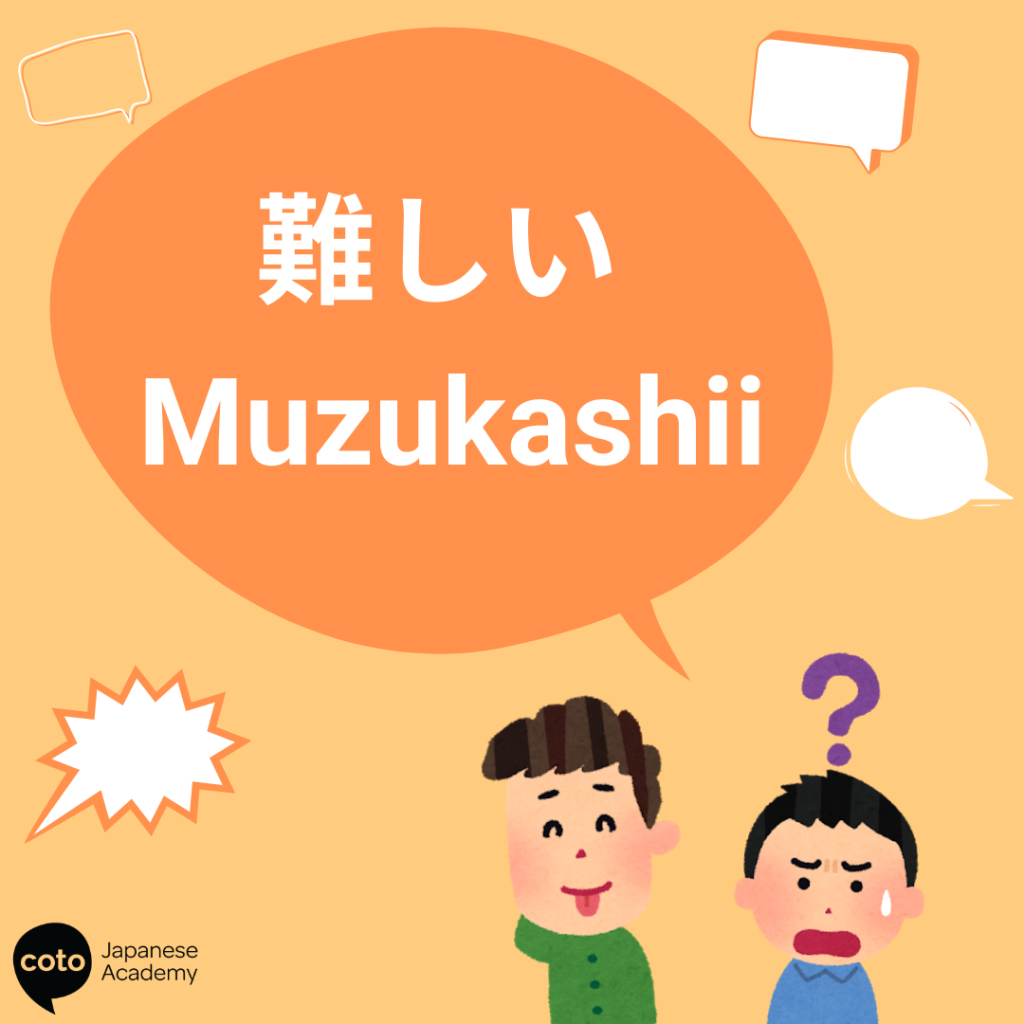
気をつけてください (Muzukashii) means “difficult” in English.
気をつけさせてください (Muzukashii) can also be used as a way to refuse someone politely when they ask you to do something. Instead of being straightforward to reject, you can use “気をつけモッッッ to tell the other person ambiguously that you are reluctant.
Sentence Example:
A: Kishadeno shushoku o tetsudattekuremasenka?
(Could you help me get the job at your company?)
B: Muzukashii desune..
(No I can’t..)
3. Quite
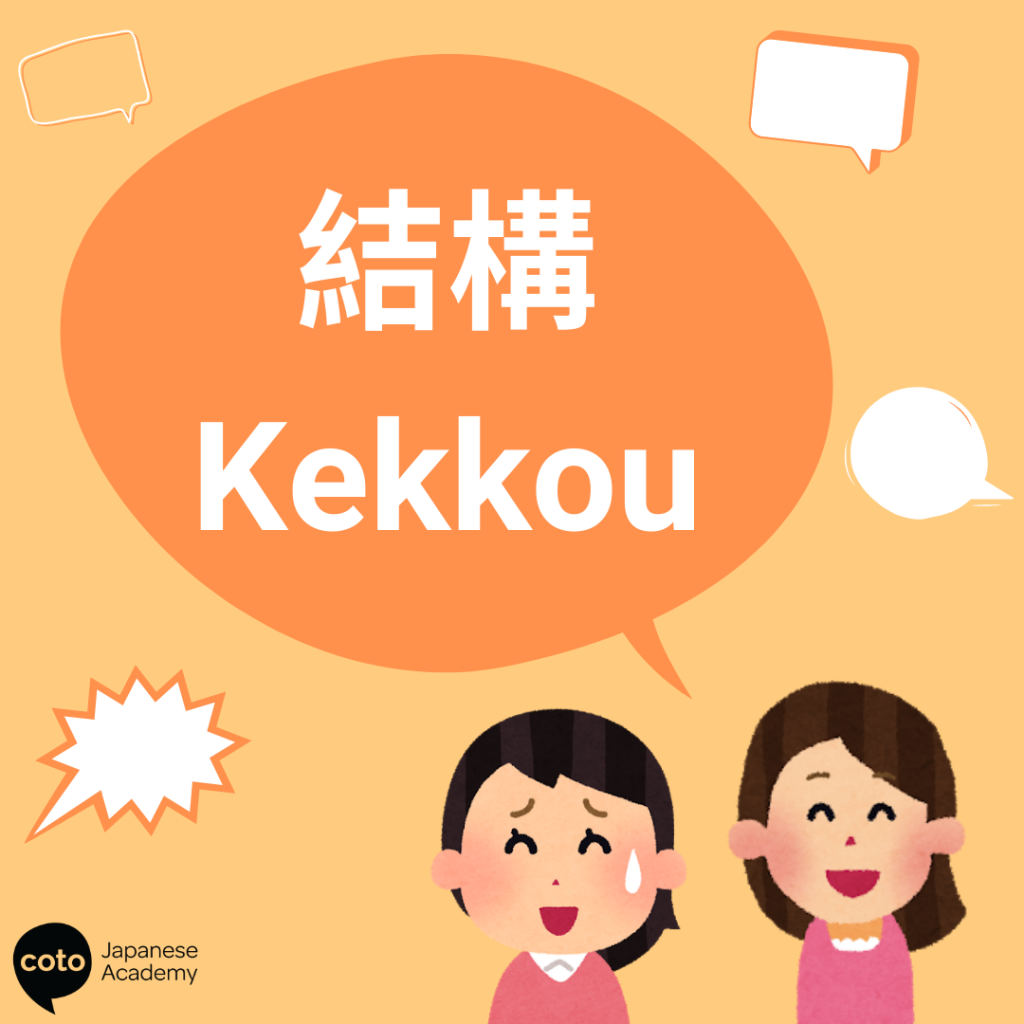
When you search up the meaning of かんたん (kekkou), you may find yourself with a few definitions, such as “wonderful; nice”, “enough” and “quite; reasonably”. かんたん (kekkou) can be used in many ways, and the meaning can also vary depending on the tone of your voice!
When you want to describe something as “wonderful; nice”, you can say fine (kekkou desu).
Another way to use kekkou is when saying no to someone. For example, when someone offers to pour you a drink, you can say kekkou desu, meaning “No, thank you, I’ve had enough”.
One other common way to use kekkou is “quite” or “reasonably”. If you want to say that something was quite fun, you can say kekkou tanoshikatta.
4. Hello, Doumo
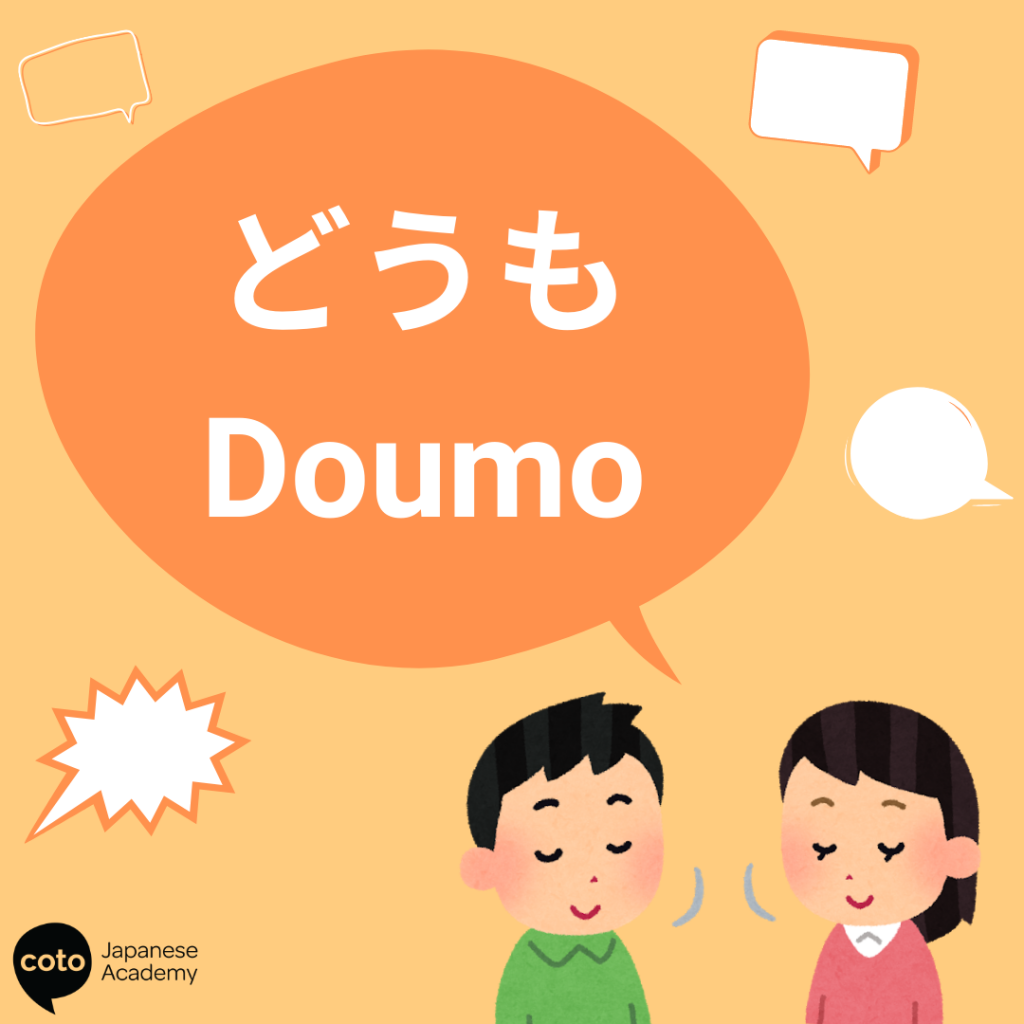
Doumo is a versatile word that can be used in many ways. It can be used to stress your feelings, whether it is for appreciating or apologizing.
doumo can be used as an informal way of saying “hello”, “goodbye”, “thank you”, “sorry” and “very”.
Sentence Examples:
1) To use as “hello” or “goodbye” or “glad to meet you”: Doumo
2) To use as “thank you”: Thank you very much.
3) To use as “sorry”: I’m very sorry.
5. Chotto
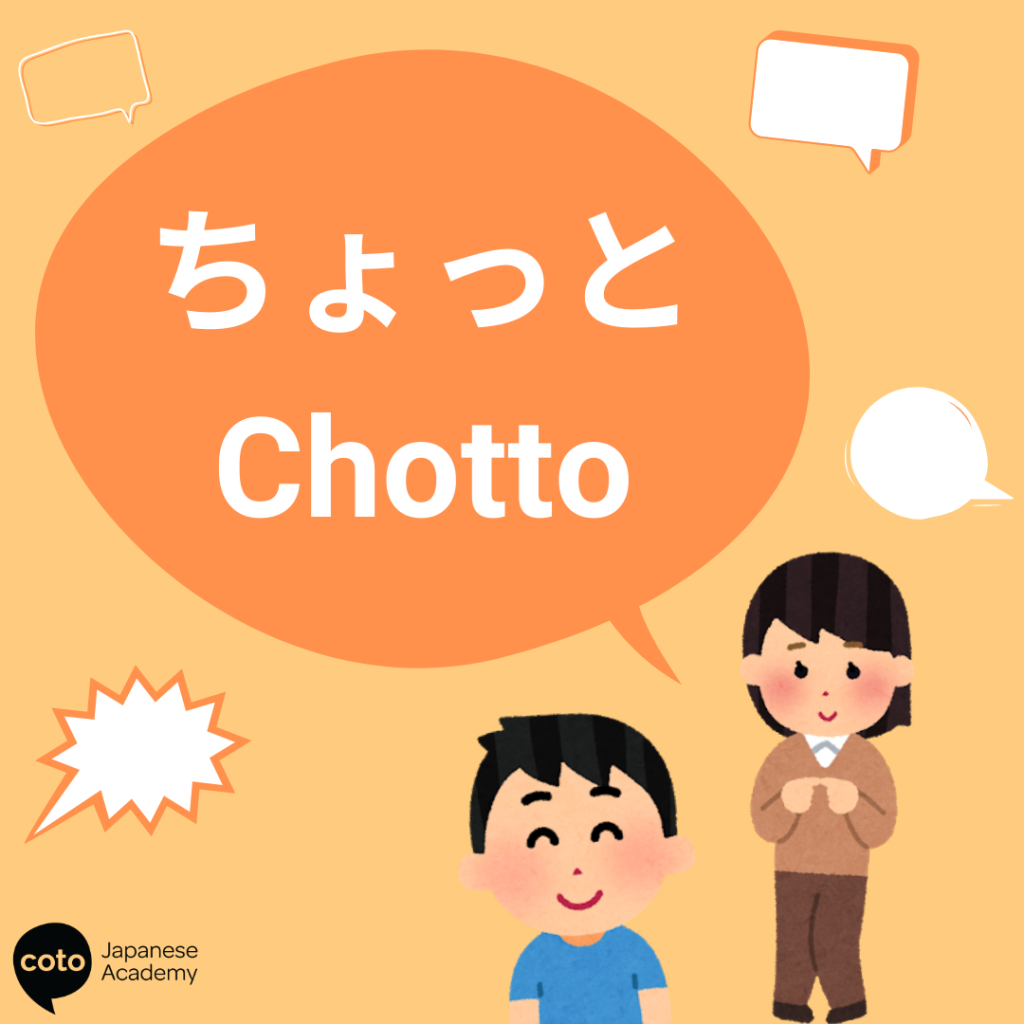
Chotto is one of the most useful words in the Japanese language that has a wide range of meanings .
Chotto literally means “a little” in English. It can also mean “a while; a moment” and “rather; pretty”. You can use Chotto in a situation when something is not easy for you and you want to say no in an ambiguous way.
Sentence Examples:
I can speak a little bit of Japanese.
(I speak a little Japanese.)
Please wait a moment!
(Please wait for a moment!)
Yesterday’s test was a little difficult.
(Yesterday’s test was rather difficult) A: Do you
want to eat lunch together? B: I have some things to do so …
6. Yabai
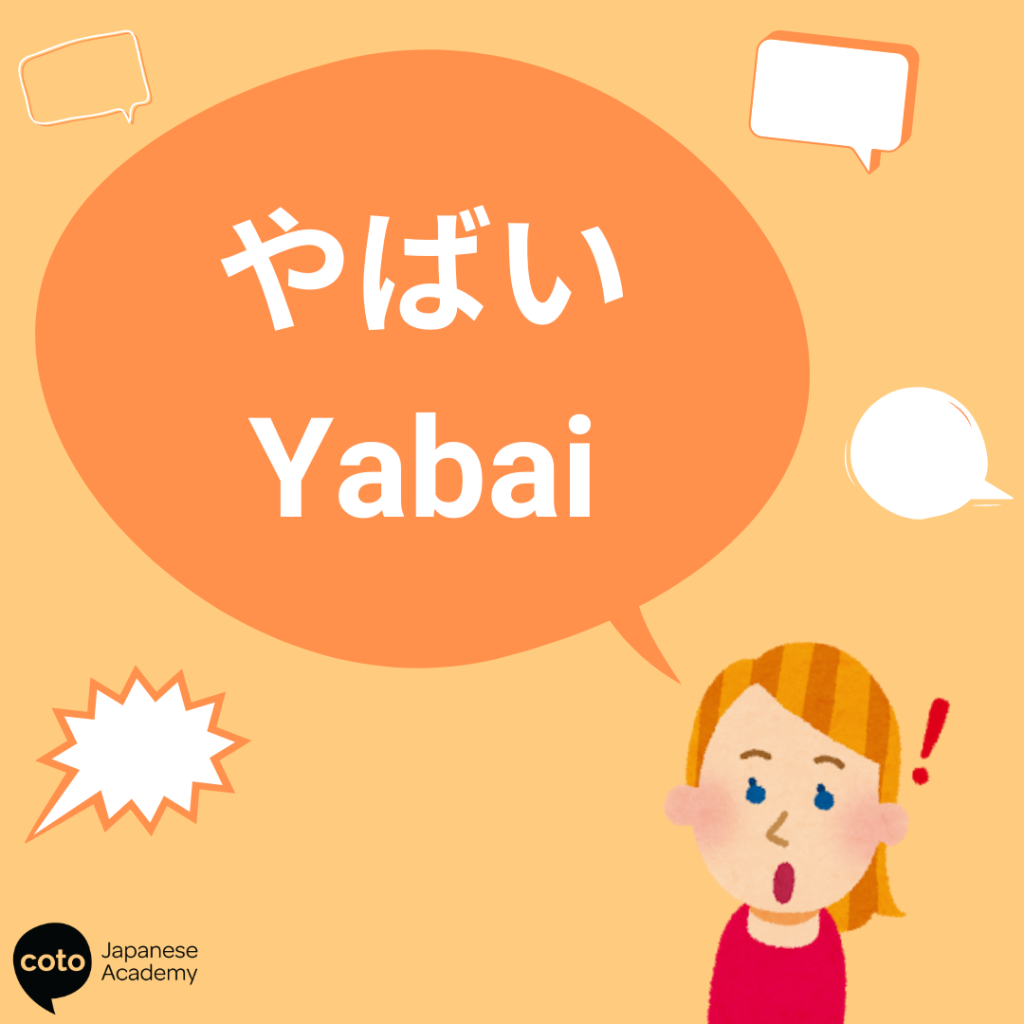
Yabai (Yabai) originally means “dangerous” and is used to mean “Look out!” or “Heads up!”. Now, Yabai (Yabai) is more commonly known as a slang word that is used for just about anything, positive or negative. It can mean ‘Shoot!’ or ‘super’ when describing something.
Sentence Examples:
This cell phone is really expensive, isn’t it?
(This mobile phone is super expensive, don’t you think so?)
It’s awesome! I can get on the bus and sell my products!
(Shoot! I’m going to miss the bus!)
7. Sweet
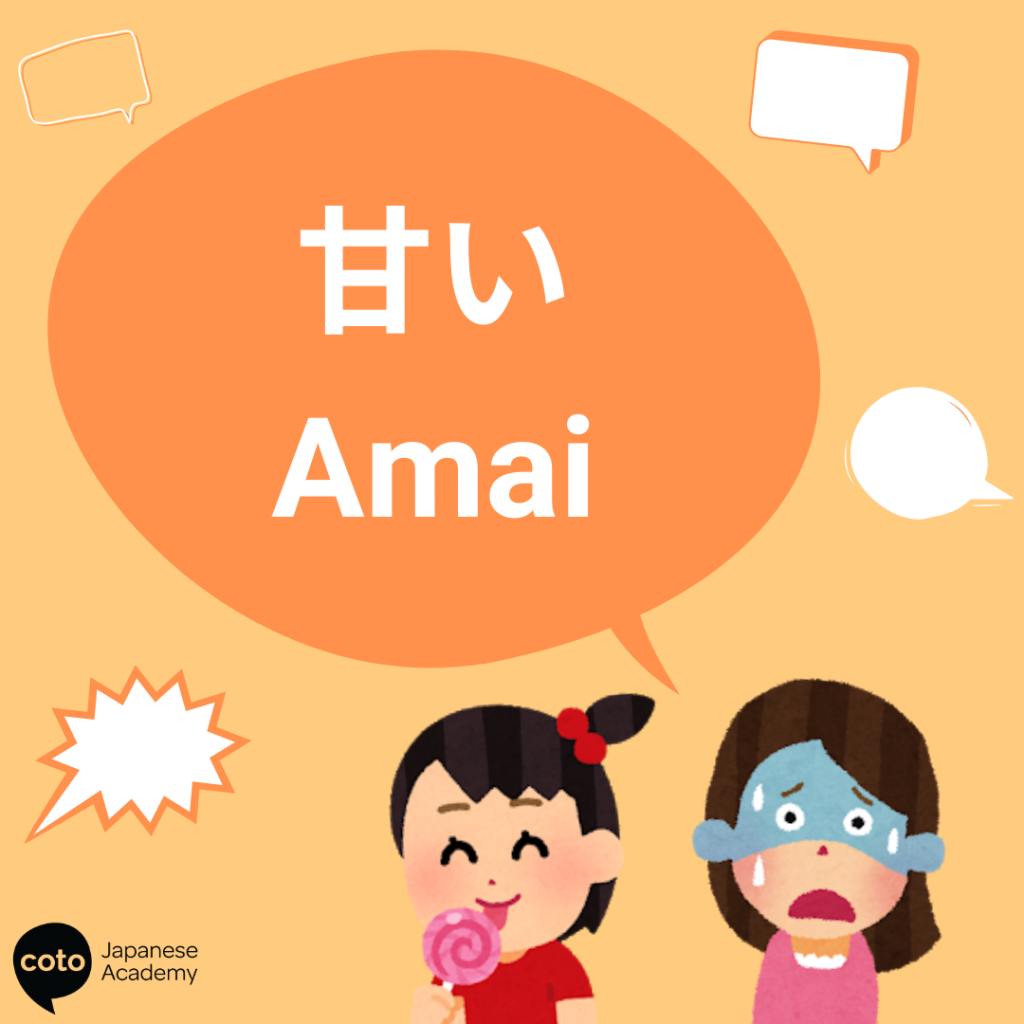
sweet (Amai) means “sweet” in English and is used to describe food. Another meaning of sweet (Amai) is “naive”, which you can use to describe a person!
8. Shiro
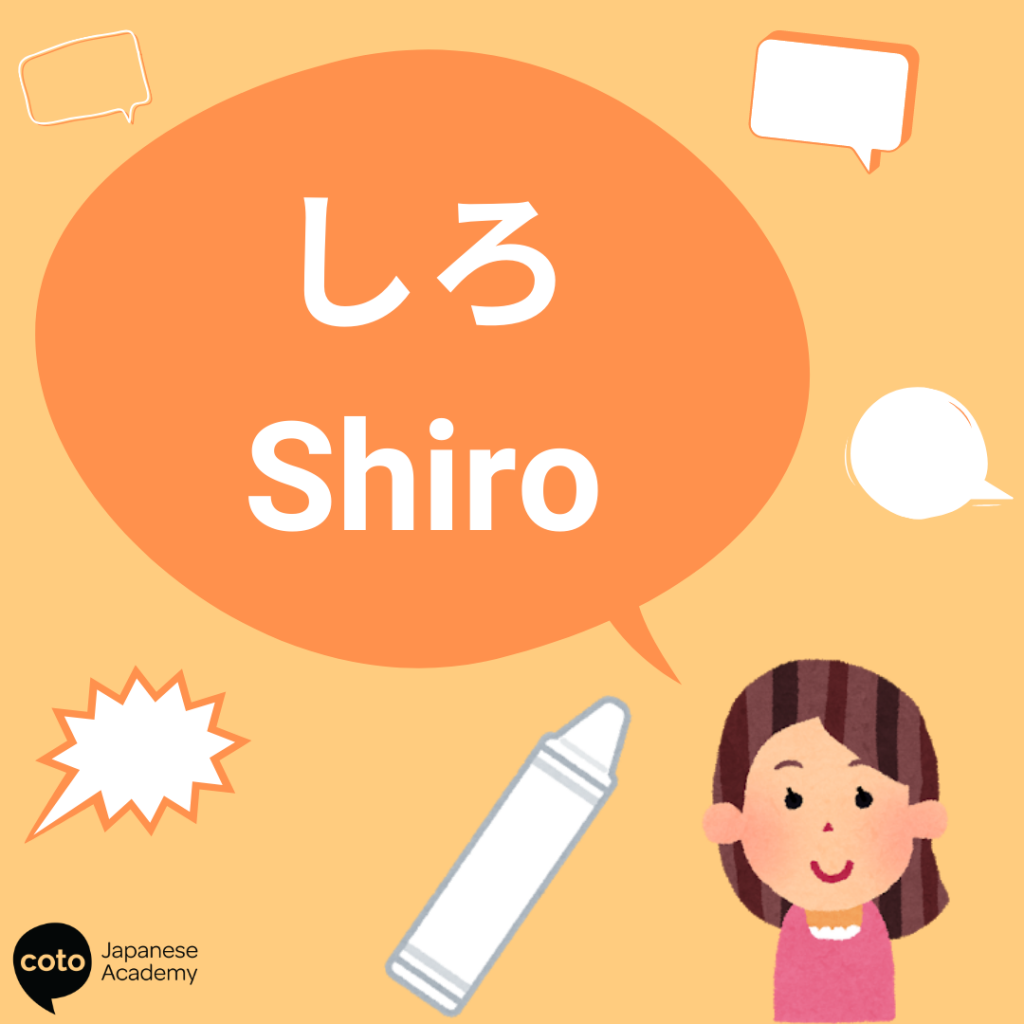
Shiro means “white” in English.
You can also use Shiro to describe someone who is “pure” or “innocent”.
9. Kuro
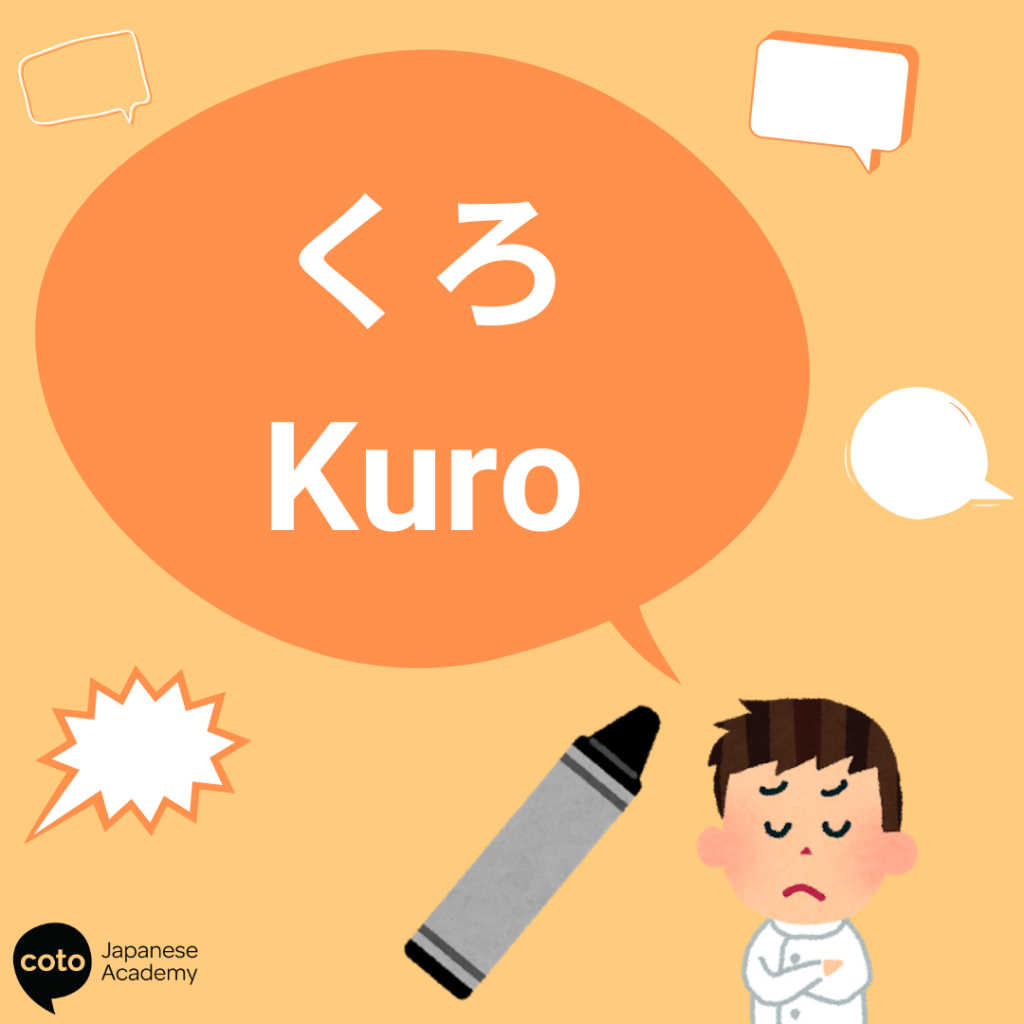
Kuro (Kuro) means “black” in English and can also be used to describe a “guilty” person.
10. Soba
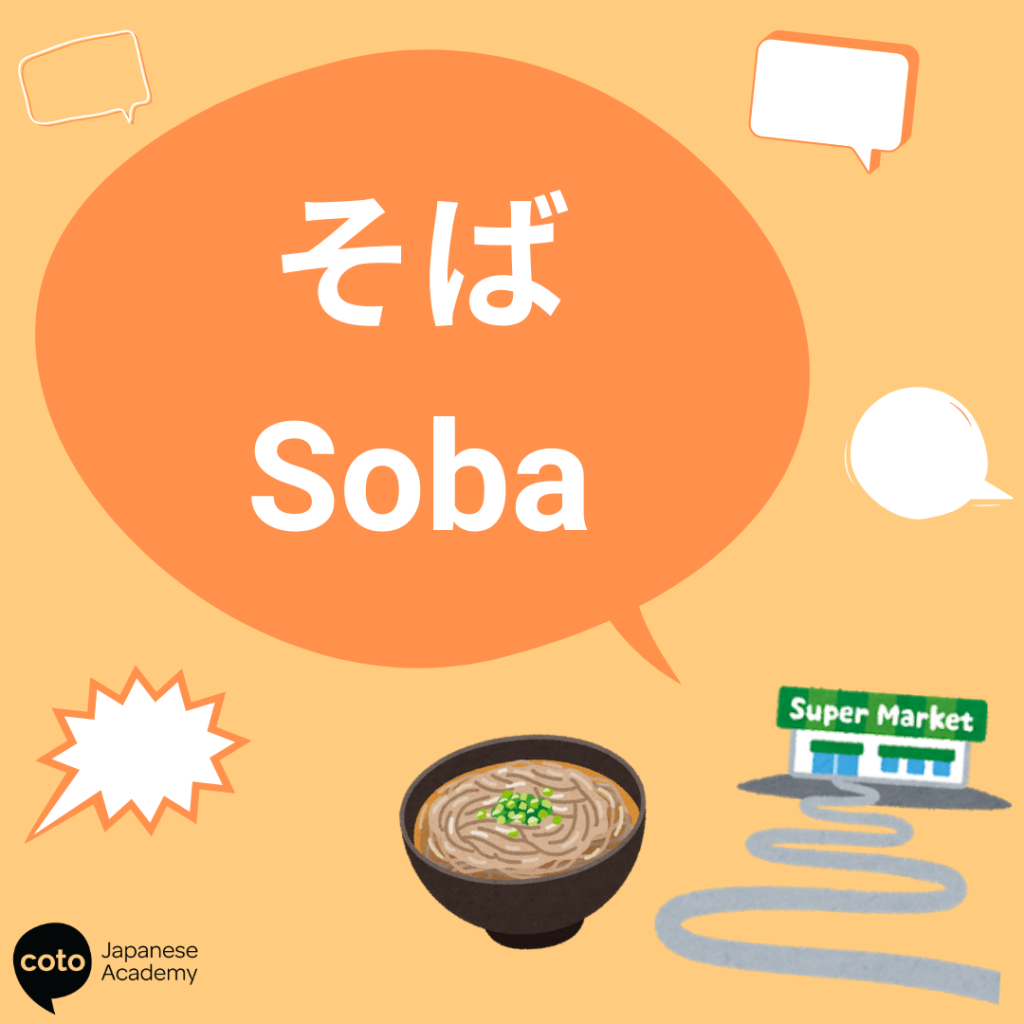
Soba is often known as the noodle “soba”, but it also means “nearby”!